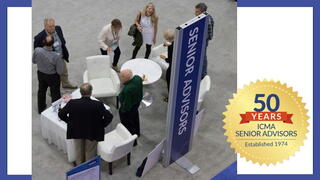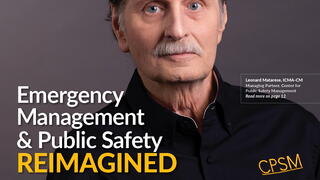
How unspoken beauty standards hold women back and how to redefine the narrative

Celebrating 50 years of helping members

Emergency Management and Public Safety Reimagined

Challenges and opportunities for local government public safety to assist disabled persons in our communities

Reflections on my experience and recommendations for policies and procedures to help along the way
The Multicultural Organization Development Model (MCOD)
Five Essential Leadership Competencies of an Effective D&I Practitioner
